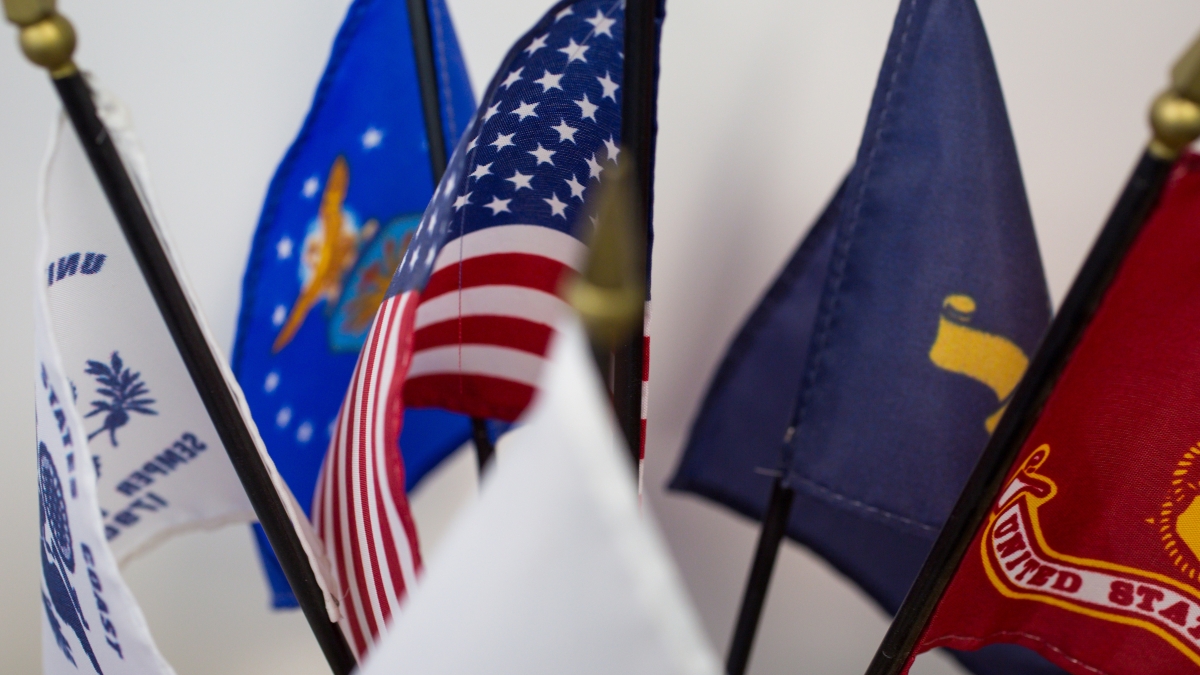Legacy Corps program that provides respite care for veterans now part of ASU
Service program matches volunteers with veterans' caregiving families

For veterans, their time in the military is often a significant part of their lives, and nobody is going to understand that service more than another veteran.
A longtime respite-care program that connects volunteers to veterans is now part of Arizona State University and soon will be helping local military families.
The Legacy Corps for Veterans and Military Families has been around for 15 years and was previously at the University of Maryland. But when the professor who ran the program retired, the project — and the $6 million grant to run it — was moved to the Watts College of Public Service and Community Solutions at ASU.
“We decided the program was too good to let go and it needed to continue on,” said David Swindell, an associate professor and the director of the Center for Urban Innovation in the Watts College. He had been involved with Legacy Corps as an evaluator and was instrumental in bringing it to ASU a few months ago.
Currently, Legacy Corps partners with agencies at 14 sites in nine states — but none in Arizona. Swindell is working quickly to change that.
“We desperately want one here because Arizona has such a large veteran population and ASU is committed to veterans, so this fits perfectly with our overarching mission,” he said.
“And respite care is a service that’s very underprovided.”
Here’s how Legacy Corps works: Nonprofit agencies that already offer respite care partner with Legacy Corps, which is part of the AmeriCorps federal service program. Volunteers sign up, get basic AmeriCorps training and are paired with a family in which either the caregiver or the care recipient is a veteran. There are no income restrictions. The volunteers spend about eight to 10 hours a week with the veteran, giving the caregiver some much-needed time off. The volunteers sign up for one year of service, which can be renewed for an additional year. Volunteers also get a small stipend to cover transportation costs.
Legacy Corps volunteers don’t have to be veterans, but Swindell said that’s the “sweet spot” the program is aiming for.
“They spend time with the recipient, and they love to talk. It’s cathartic to have this friend who understands,” he said.
Another benefit is that when their service ends, AmeriCorps volunteers receive an education stipend of about $1,600 that can be used to pay tuition, and volunteers over age 55 can transfer that money to family members.
Swindell said the 15 years of the program has produced a lot of research showing that the service increases community engagement among the volunteers — even after their term is over. Every volunteer is surveyed four times, before, during and after their term.
“We found that their sense of community attachment, and the social capital generated from training, jumps very high at the beginning,” he said.
“And after they leave the program, two years later, it goes down a little, but it’s still way higher than it was when they started,” he said.
“What that translates into is that these individuals, even after they finish their volunteer term of service with AmeriCorps, continue to volunteer. That means the dollars spent on their stipends by the federal government are getting a return on investment that’s much higher than what we’re spending.”
Surveys of caregivers also found high satisfaction with the program — a key element, according to Jack Steele, project director for Legacy Corps.
“The goal is to reduce the burden of stress and to stabilize or improve the emotional well-being of that caregiver,” he said. “Veteran and military families are heroes, and we’re trying to reach into their lives and improve their health.”
Linda Siegel, program manager for Legacy Corps, said that volunteers get training on how to interact with the care recipients.
“We do a lot on communication techniques and a whole curriculum on military culture,” she said. “They learn games and get tool kits so they can design their own way to approach this.”
There are more than 520,000 veterans in Arizona, according to the U.S. Census, and two-thirds of them are age 55 or older.
While Legacy Corps has not finalized a site in Arizona yet, Swindell said that the program is accepting applications for volunteers, and people who are interested should contact him.
“It would be great to have folks in the pipeline for when we get the site here running,” he said.
Top image by Charlie Leight/ASU Now
In celebration of Veterans Day, Arizona State University proudly honors veterans and active members of the military through Salute to Service. Your support helps veterans succeed. Text ASUVets to 41444 to donate to the Veterans Education Fund or visit veterans.asu.edu to learn how you can honor a veteran.